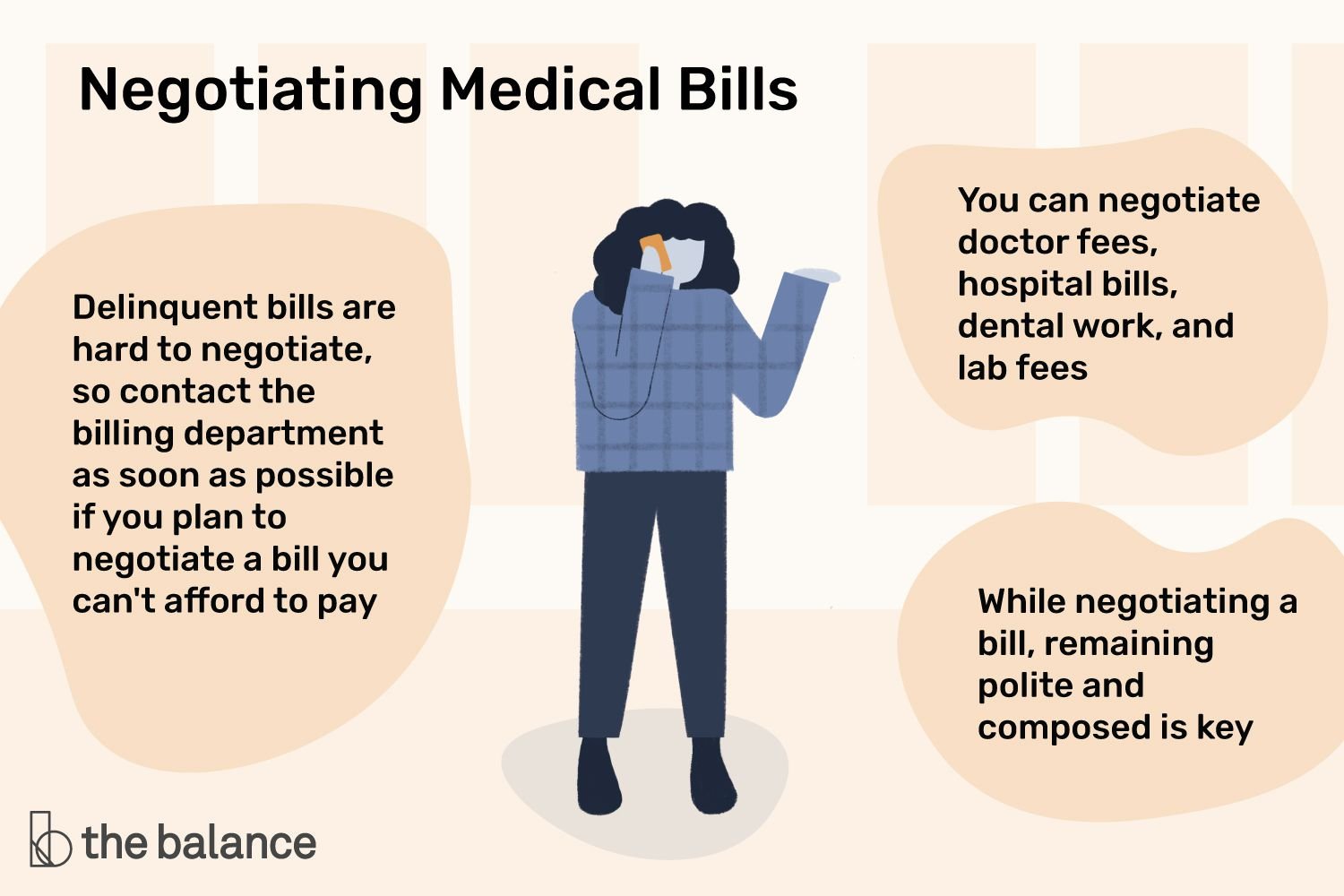Are you struggling to handle your medical bills and payments? Negotiating medical costs can feel overwhelming, but with the right approach, it is possible to find solutions that work for both you and your healthcare provider. In this article, we will dive into the strategies and tips on how to negotiate medical bills and payments effectively. With these insights, you can take control of your medical expenses and find relief from the financial burden often associated with healthcare. Let’s explore the world of medical bill negotiation together.
How to Negotiate Medical Bills and Payments
Introduction
When faced with high medical bills, negotiating the costs and payment options can make a significant difference in your financial well-being. Medical bills can often be overwhelming and difficult to understand, but with some knowledge and a proactive approach, you can navigate the complex healthcare system and work towards a fair resolution. In this article, we will discuss various strategies and tips on how to negotiate medical bills and payments effectively.
Understanding Your Medical Bills
Before you start negotiating, it’s crucial to have a clear understanding of your medical bills. Medical bills can be confusing and contain various charges, including doctor’s fees, hospital charges, medications, laboratory tests, and more. Here’s what you can do to better comprehend your bills:
- Review your bills thoroughly: Carefully read through each line item of your medical bill and cross-reference it with any procedures or services you received.
- Check for errors: Mistakes can happen, so make sure there are no duplicate charges, incorrect billing codes, or services you didn’t receive. If you spot any errors, contact the billing department immediately to resolve them.
- Verify insurance coverage: Check whether your insurance provider has covered all eligible expenses. Understand your insurance policy’s terms, including deductibles, co-pays, and coverage limits.
Researching Fair Prices
To negotiate effectively, you need to know the fair prices for the medical services or procedures you received. Here are some ways you can gather pricing information:
- Research online: Utilize websites and platforms that provide cost estimations for medical procedures in your area. This can give you an idea of the average prices charged by different healthcare providers.
- Contact multiple providers: Reach out to several hospitals or clinics and request estimates for the specific services you require. This will allow you to compare prices and negotiate better.
- Engage with your insurance provider: Your insurance company can provide you with an estimate of the usual and customary fees for medical services in your area.
Initiating Negotiations
Once you have a clear understanding of your bills and the fair prices, it’s time to initiate negotiations. Here are steps to take:
- Contact the provider’s billing department: Reach out to the billing department or customer service representative of the healthcare provider. Explain your situation, express your willingness to pay, and discuss your concerns about the bills.
- Ask for a detailed bill explanation: Request a breakdown of the charges and a clear explanation of any confusing or ambiguous items. This will help you identify any potential areas for negotiation or errors.
- Share your financial situation: If you are facing financial hardship, be open about it. Discuss your income, expenses, and any insurance coverage limitations that may affect your ability to pay.
Negotiating Strategies
Negotiating medical bills requires patience, persistence, and good communication skills. Here are some proven strategies to help you during the negotiation process:
1. Offer a lump-sum payment
Many healthcare providers offer discounts if you can pay your bill in full. If you have the means to make a lump-sum payment, inquire about any available discounts or reduced payment options.
2. Propose a payment plan
If you’re unable to pay the full amount upfront, discuss the possibility of setting up a manageable payment plan. Emphasize your commitment to fulfilling your financial obligations and propose a realistic monthly payment amount that fits your budget.
3. Reference fair prices
If you have researched fair prices for the same medical services, use this information during negotiations. Politely explain that you are aware of the average costs in the market and request a reduction in charges to align with those benchmarks.
4. Ask for discounts
Don’t hesitate to ask if the provider offers any discounts or financial assistance programs. Some hospitals and clinics have charity care programs or reduced fees for uninsured or low-income patients. Inquire about these options and whether you qualify.
5. Negotiate out-of-network charges
If you received treatment from an out-of-network provider unknowingly, you can negotiate the charges. Explain that you were not aware of their status during the treatment and request that they bill you at the in-network rate, which is often significantly lower.
6. Seek professional assistance
If negotiations don’t progress as expected, consider seeking help from a professional medical billing advocate or a healthcare attorney. These professionals specialize in resolving medical billing disputes and can provide invaluable guidance throughout the negotiation process.
Finalizing the Negotiation
Once you reach an agreement with the healthcare provider, ensure that all the terms and agreements are documented in writing. Review the final bill carefully and confirm that the negotiated changes are accurately reflected. Once you are satisfied, make the agreed-upon payment, whether it’s in a lump sum or according to the proposed payment plan.
Remember to keep copies of all the correspondence and bills for future reference, including receipts for payments made.
Navigating the complex world of medical bills can be challenging, but by understanding your bills, researching fair prices, and applying effective negotiation strategies, you can take control of your healthcare costs. Remember to maintain open and honest communication with the healthcare provider, and don’t hesitate to seek professional assistance when necessary. By advocating for yourself and actively engaging in negotiations, you can alleviate the burden of medical bills and achieve a fair and manageable payment arrangement.
How to negotiate your medical bills | Life Kit
Frequently Asked Questions
Frequently Asked Questions (FAQs)
1. Can I negotiate my medical bills and payments?
Yes, you can negotiate your medical bills and payments. Many healthcare providers are open to negotiation, especially if you are facing financial difficulties or if you have limited insurance coverage.
2. How should I prepare for negotiating my medical bills?
To prepare for negotiating your medical bills, gather all relevant documents such as medical bills, insurance statements, and explanations of benefits. Review and understand the details of your insurance coverage and any applicable laws or regulations that protect your rights as a patient.
3. What should I do before contacting the healthcare provider?
Before contacting the healthcare provider, it’s recommended to review the medical bills and ensure their accuracy. Check for any errors or discrepancies and gather supporting documentation if you believe certain charges are incorrect or unjustified.
4. How can I initiate the negotiation process?
To initiate the negotiation process, reach out to the billing department of the healthcare provider. You can usually find their contact information on the medical bills or the provider’s website. Explain your situation, express your willingness to negotiate, and provide any supporting documentation, if applicable.
5. What factors can influence the success of negotiating medical bills?
Several factors can influence the success of negotiating medical bills, such as your financial situation, the healthcare provider’s policies, the complexity of your case, and your ability to effectively communicate and advocate for yourself. Patience, persistence, and maintaining a respectful tone throughout the negotiation process can also make a difference.
6. Is it possible to negotiate payment plans or discounts?
Yes, it is often possible to negotiate payment plans or discounts with healthcare providers. They may be willing to work out an installment plan that fits your budget or provide a discount on the total amount owed. Exploring these options can help make your medical bills more manageable.
7. Can I seek assistance from a medical billing advocate or professional?
Yes, you can seek assistance from a medical billing advocate or professional. These individuals specialize in navigating the complexities of medical billing and can help you negotiate with healthcare providers, review your bills for errors, and provide guidance throughout the process.
8. What are some negotiation strategies to consider?
When negotiating medical bills, some effective strategies include being polite and persistent, providing evidence of financial hardship if applicable, comparing prices with other healthcare providers, and emphasizing your willingness to pay a reasonable amount. It can also be helpful to research fair pricing for the medical services received.
Final Thoughts
In conclusion, negotiating medical bills and payments is essential for managing healthcare costs effectively. Start by reviewing your medical bills and checking for any errors or inaccuracies. Research the average cost for the services you received and use this information as leverage during negotiations. Contact the healthcare provider or billing department to discuss payment options, such as setting up a payment plan or negotiating a reduced amount. Be prepared to provide documentation and medical records to support your case. Persistence and assertiveness are key when negotiating, ensuring you advocate for yourself and work towards a fair resolution. By being proactive and informed, you can navigate the complex world of medical billing and payments successfully.



